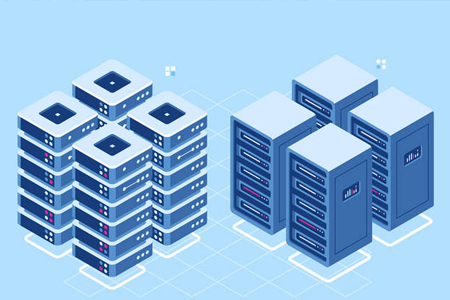The dedicated hosting server is a server provided to a single customer. The data center provides specialized physical hardware, network connection and maintenance services. Below I will explore the advantages, characteristics and some considerations of the special hosting server in detail.
1. Performance advantages:
The dedicated hosting server provides exclusive physical hardware resources to ensure that customers can make full use of the performance of the entire server. This is very important for handling a large amount of data, running complex applications, or a large amount of computing resources.
2. Security and privacy:
Special hosting server provides higher levels of security and privacy protection. Because the server is specifically configured for a single customer, customers do not have to worry about hidden safety hazards caused by sharing hardware with other tenants. This is very important for companies that handle sensitive data and comply with regulations.
3. Customized configuration:
Customers can customize the hardware configuration of the special hosting server according to their needs, including CPU, memory, storage and network bandwidth. This customized configuration enables customers to meet the requirements of specific workloads and ensure the performance and availability of the server.
4. Independent control:
Customers have independent control of the server, and they can manage the operating system, installation application and configuration network settings as needed. This provides customers with greater freedom to enable it to customize and manage the server to meet business needs.
5. High availability and reliability:
Special hosting servers are usually deployed in reliable data centers to provide highly available infrastructure and redundant systems. This ensures that the server can be maintained when the hardware failure or other problems occur, minimizing the risk of business interruption.
6. Professional technical support:
Data centers usually provide professional technical support teams to monitor and maintain special hosting servers. Customers can get timely technical support to ensure the stability and security of the server.
7. Cost control:
Although special hosting servers are usually higher than the cost of sharing custody or cloud services, it may be a more cost -effective choice for companies that require greater computing resources, security and performance. In addition, because customers can choose the hardware configuration as needed, they can better control the cost.
Factors:
1. Cost:
Special hosting servers are usually more expensive. Customers need to evaluate their budgets and needs to ensure that this service meets its financial plan.
2. Technical management:
Customers need to consider whether there are sufficient technical teams to manage and maintain a special hosting server. If there is no internal technical resources, you can choose to use management services provided by the host service provider.

3. Security:
Although the special hosting server provides higher -level security, customers still need to take appropriate security measures to ensure the security of the server and data.
4. Expansion:
If business demand changes in the future, customers need to evaluate whether the special hosting server has sufficient scalability in order to meet future needs.
5. Service level protocol (SLA):
When choosing a dedicated hosting service provider, customers should check their SLA carefully to understand the promise of service providers for service availability and fault recovery time.
The dedicated hosting server is suitable for enterprises that require high performance, security and customized configuration. When choosing, customers need to consider factors such as cost, technical management, security, and service quality to ensure the selection of solutions that are most suitable for their business needs.

 EN
EN
 CN
CN








